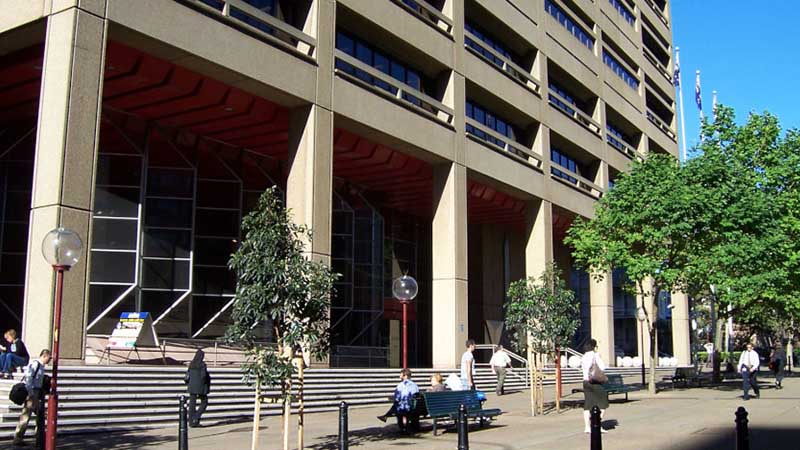Court dismisses appeal case against SMSF accountant
An SMSF accounting firm who took legal action against a former employee for contacting clients of the firm after resigning has lost its appeal in the NSW Supreme Court.
The case of Superannuation & Corporate Services Pty Ltd v Turner involved an accountant who had resigned following bullying and harassment in the workplace.
The accountant, Mr Turner, was an accountant employed by Superannuation & Corporate Services Pty Ltd and specialised in preparing financial statements and tax returns for SMSFs.
Shortly before his resignation, Mr Turner incorporated a company, Attain Super Services Pty Ltd, and downloaded files of 16 clients who were family and friends, which he could not open, and a client list containing 350 client names and postal addresses, as to which there was no evidence of actual misuse.
Following his resignation, Mr Turner contacted clients of SCS by email, using contact email addresses in his mobile phone. His former manager, Mr Taylor, then sent a demand to Mr Turner on 4 December 2016 threatening legal action including criminal prosecution.
On 21 December 2016, the parties entered into a deed of settlement and release, resolving claims by SCS that, upon his resignation, Mr Turner had engaged in, inter alia, unlawful conduct by using SCS’s client information in relation to his own business — Attain — and was liable to criminal prosecution. Clause 2.1(f) of the deed relevantly provided that Mr Turner pay SCS an agreed fee for each client that voluntarily wished to become clients of Mr Turner arising from his... activities and conduct to date.
The agreed fee was the amount charged or chargeable to the client for work on an annual basis. Mr Turner was to pay 50 per cent of this agreed fee upfront and the balance of 50 per cent 12 months thereafter.
Clause 5.1 provided for a qualified release of SCS’s claims against Mr Turner, contingent upon his compliance with clause 2.1. Clause 6 provided that payment of Mr Turner’s employee entitlements was contingent upon his compliance with clause 2.1.
In February 2018, SCS brought proceedings against Mr Turner in the District Court claiming a liquidated sum — ultimately calculated as $181,059 — as the amount owing under clause 2.1.
Mr Turner denied that the payment obligation in clause 2.1(f) was engaged and claimed that the deed was an unjust contract within the meaning of section 7 of the Contracts Review Act 1980 (NSW) and should be set aside.
He submitted that the deed was procedurally unjust under section 7 of the act, because the deed held over Mr Turner payment of his statutory entitlements and required that he pay to SCS, in perpetuity, 100 per cent of any fees earned, at any time, from all past and present clients of SCS who wished to become clients of Mr Turner.
It was argued that this was not reasonably necessary for the legitimate protection of SCS’s rights, particularly when his employment contract contained no covenant not to compete and no restraint of trade.
The primary judge, E M Olsson, upheld Mr Turner’s defence under the act, finding that the deed was an unjust contract under section 7 and dismissed the statement of claim which sought to enforce clause 2.1(f) of the deed.
SCS then appealed the decision, submitting that the primary judge had erred in her finding that the deed was unjust due to “errors in six factual findings” and taking into account the parties’ historical dealings.
In the appeal decision, Justice Fabian Gleeson stated that in determining whether a contract or a provision of a contract is unjust, section 7(1) of the act directs the court’s attention to “the circumstances relating to the contract at the time it was made”.
“Plainly, those circumstances can include historical dealings between the parties to the contract where, as in a case such as the present, those dealings have relevance to whether there is procedural injustice leading to the entry into the contract, or substantive injustice contained in the terms of the contract,” Justice Gleeson explained.
“First, as the primary judge found, the 4 December demand contained overbearing threats of legal action including criminal prosecution which ‘played on Mr Turner’s mind’, given the many months of bullying and harassment before he left SCS. There is no challenge to that finding.”
Justice Gleeson found there was, therefore, no error in taking into account the historical dealings between the parties prior to Mr Turner’s entry into the deed.
SCS also contended that the primary judge had erred in failing to have regard to the circumstances relating to the deed at the time it was made, including its commercial setting and purpose, the public interest in compliance with provisions of the deed, certainty of contractual relations, the two-sided nature of the deed, and the relative professional and educational capabilities of the parties.
The court found that none of these complaints should be accepted.
“Her Honour correctly took into account relevant circumstances under section 9(2) of the act and evidence at the time of the deed, giving sufficient reasons for her decision,” Justice Gleeson stated.
“The finding that clause 2.1(f) was unjust was inevitable, given that it was not proportionate to Mr Turner’s asserted wrongdoing, and it imposed an unreasonable burden on Mr Turner when it was not reasonably necessary to protect the legitimate interests of SCS.”
The appeal against Mr Turner by SCS was dismissed by the court.

Miranda Brownlee
Miranda Brownlee is the deputy editor of SMSF Adviser, which is the leading source of news, strategy and educational content for professionals working in the SMSF sector.
Since joining the team in 2014, Miranda has been responsible for breaking some of the biggest superannuation stories in Australia, and has reported extensively on technical strategy and legislative updates.
Miranda also has broad business and financial services reporting experience, having written for titles including Investor Daily, ifa and Accountants Daily.


